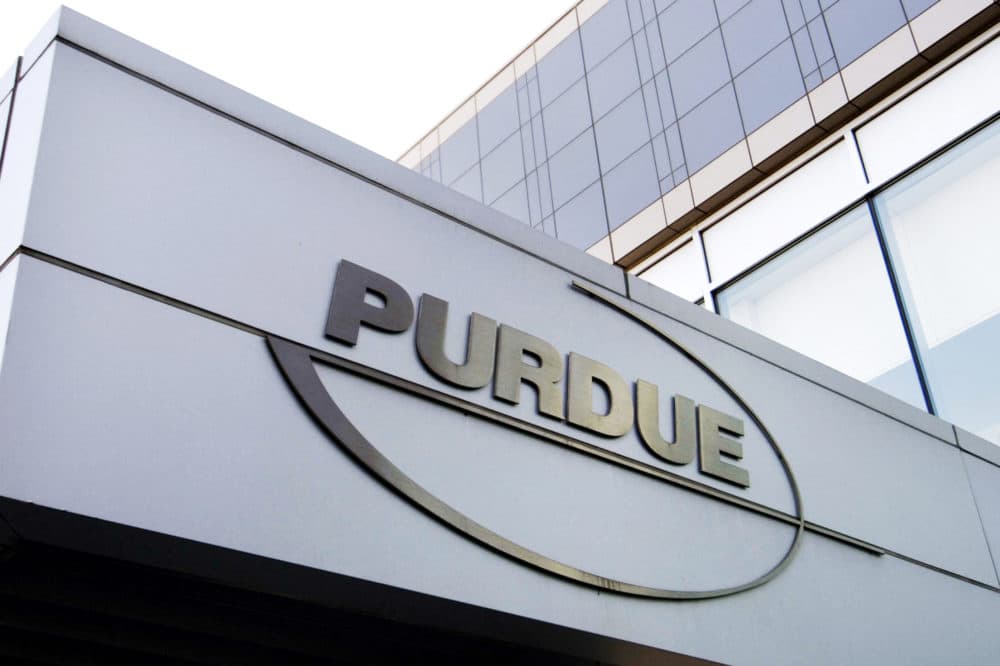Advertisement
'Not Enough': Attorney General Healey Rejects Purdue Pharma Settlement

The drug giant Purdue, makers of the opioid OxyContin, and members of the Sackler family, which owned the company, have offered $4.3 billion to settle lawsuits alleging corporate profiteering from the opioid crisis.
Massachusetts was one of the dozens of states, cities and towns in the suits. The money is up from $3 billion offered by the company and the Sacklers last year. But State Attorney General Maura Healey has decided this state is not signing on to this new offer.
Healey joined WBUR's Morning Edition host Bob Oakes to discuss. Highlights from this interview have been lightly edited for clarity.
Interview Highlights
On how much she thinks the Sacklers should pay
There are many things that I don't like about this plan. It's not enough money. It's also a plan that doesn't provide what our families deserve, which is transparency and accountability. So this is not the end, and this deal is nowhere near acceptable. And for the Sacklers, who pocketed so much money, this plan essentially lets them off the hook for paying a fraction of what they made from selling OxyContin and the fortune they made, and ultimately to walk away from this with their investments even richer than they are today.
... The Sacklers need to pay up. It needs to be a lot more money to help us to cover the treatment and to try to provide the services that we want to provide to families across our states.
On what else she wants to see included in the settlement
The other thing is that there needs to be full disclosure. I want the creation of a document repository ... [that] lays bare all the emails, all the memos that show exactly what these corporate executives, board members and employees and Sackler family members knew and what they did, because that should be a lesson and a deterrent for any corporate actor that wants to act or is thinking about acting in a way that is really exploitive. And we don't want to see any more opioid epidemics.
And the other thing is this — in Massachusetts, we don't want to own an opioid company. So right now, Purdue is hoping that the government can essentially take over this and reap the profits and continue to sell. And I'm not interested in operating a drug company. There needs to be a wind down of this company.
On whether she is holding out because of suspicion that further disclosure might provide evidence for criminal charges
Well, the law gives us a lot of tools, and you're absolutely right. ... The law does require disclosure. So we are going to push for the most robust disclosure and we want that now. We want that done before anyone votes on a proposed bankruptcy plan. And I think the point about disclosure is absolutely critical because, again, the nation deserves to know what happened here, both for purposes of holding Purdue and the Sacklers accountable, and also for purposes of making sure that this sort of corporate, you know, greed and exploitation, to the detriment of millions and millions of people, is never perpetrated again.
